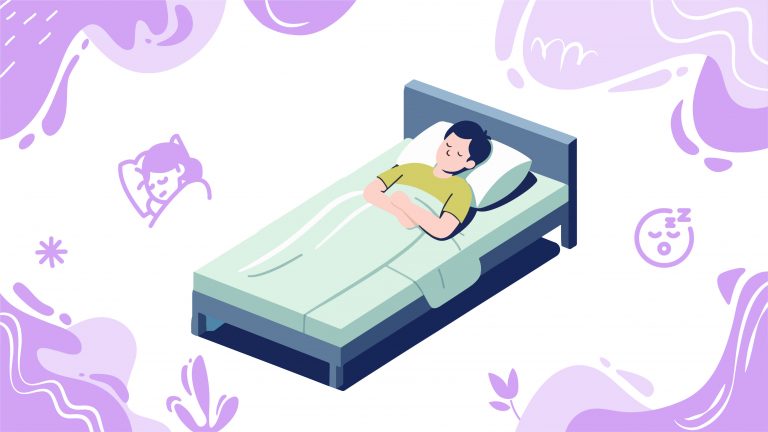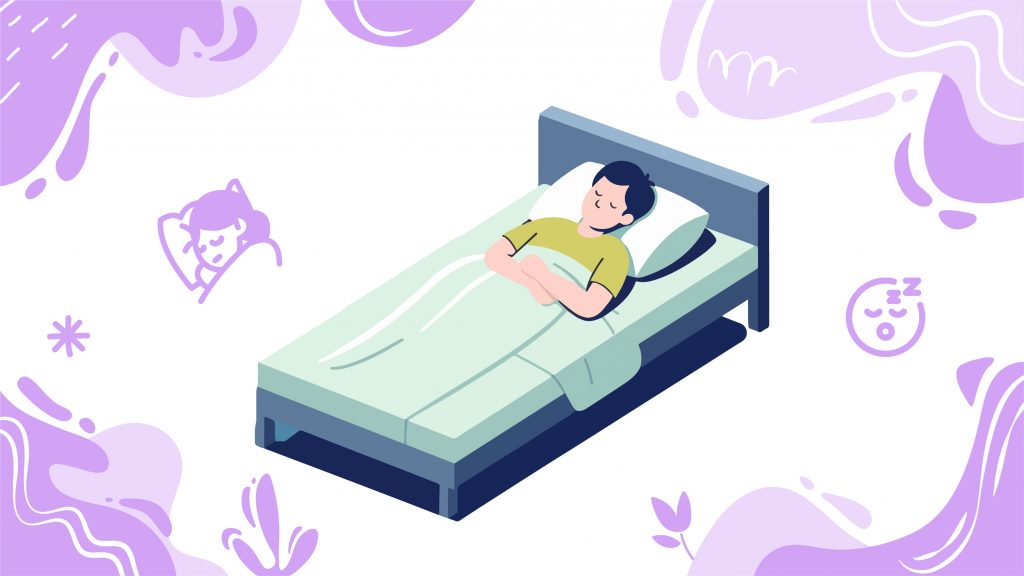“Sleepless night, shouting for peace; twisting and turning, yearning for ease.”
Do you find yourself tossing and turning almost every night after a long day and waking up all tired?
You’re not alone! Many people struggle to find a comfortable sleep position, which can lead to restless nights and stiff, painful mornings.
If you’re experiencing persistent neck or back aches or a constant lack of energy, it may be time to look closely at your sleep habits. Poor sleep positions can harm your body, affecting your spine alignment, breathing, and overall comfort.
Adopting healthier sleep positions can make a big difference in your sleep quality and overall well-being. The right sleeping posture can ease discomfort, improve breathing, support digestion, and encourage more restful sleep.
Let’s explore why healthy sleep positions matter, how different sleeping styles impact your health, and practical tips to help you enjoy a more restorative night’s sleep.
Why Healthy Sleep Positions Matter for Your Well-Being?
Do you believe that sleep is just a state of rest? Then, you must understand that it is a critical pillar of your overall health.
A healthy sleep position helps you enhance your overall well-being, improving your mental clarity and physical health.
Did you know that 1 in 3 adults report feeling unrested despite sleeping a full night? Choosing the right position can lead to improved sleep quality, reduced discomfort, and even better emotional health.
🎭 Interesting Fact
A well-chosen sleep position acts as a silent architect of your health, shaping not only the quality of your rest but also influencing your mood, productivity, and even your resilience to stress. By optimizing your sleep posture, you’re investing in a brighter, more energized tomorrow.
Here are some of the reasons why a healthy sleep position matters for your health:
- Spinal Health
Proper alignment during sleep minimizes strain on your spine, reducing the risk of chronic pain.
- Breathing Efficiency
Healthy sleep positions can improve airflow and reduce snoring, leading to deeper, uninterrupted sleep.
- Mental Well-Being
A good night’s sleep positively impacts your mood and cognitive function, making you more resilient to daily stresses.
The Impact of Different Sleep Positions on Your Health
Choosing the right sleeping position can deeply impact various aspects of your health. Each position offers unique benefits and potential drawbacks.
Here’s how different sleep positions impact your body:
- Back Sleeping:
While back sleeping positions may help maintain spinal alignment, they can also worsen snoring or sleep apnea in some people. Research shows that 43% of people who snore sleep on their backs.
- Side Sleeping
Side sleeping is considered one of the best sleeping positions for your health. It can relieve back pain and improve breathing, especially for those with sleep apnea. It also promotes better digestion.
- Stomach Sleeping
Stomach sleeping can be comfortable for some people, but this position often leads to neck and back strain. A study indicates that individuals who sleep on their stomachs experience more neck pain than those who sleep on their sides or backs.
Mindful Thought
Listen to your body as you rest. The way you sleep can nurture or challenge your health. Discovering the right position is a gentle step toward deeper comfort, balance, and well-being.
Different sleep positions affect your body and mind. By understanding how you sleep, you can choose positions that boost your health and well-being.
Best Sleep Positions for a Healthier Night's Sleep
If you want to enhance your health benefits, it is essential to understand the sleep positions for better sleep quality.
Here are some of the best sleeping positions tailored to specific needs:
#1: For Better Breathing and Snoring
The best sleeping position is on your side. Side sleeping can improve breathing, especially if you have asthma, and help reduce snoring. Sleeping on your left side also boosts blood flow and keeps airways open, making breathing easier.
#2: For Better Spine Alignment
Back sleeping is one of the most effective positions for better spine alignment. You can use a supportive pillow to align your neck with your spine. This position helps prevent back pain and maintains spinal curvature, making it one of the best positions for better sleep quality. You can also include a foam mattress for better and more comfortable sleep.
#3: For Pregnant Women
Left-side sleeping is best for pregnant women, as sleeping on their left side enhances blood flow to the fetus and reduces pressure on the liver. This position can also relieve back pain and promote better digestion.
#4: For Lower Back Pain Relief
If you are suffering from lower back pain, curling your body into a fetal position can relieve it. It helps to reduce the tension in your spine, making it a popular choice for people seeking sleep positions for back pain relief.
👉 Bonus Tip
Transform your sleep quality by pairing your ideal position with a calming bedtime routine. Incorporate gentle stretches or relaxation techniques before sleep to ease tension and prepare your body for rest. This holistic approach not only complements your sleeping position but also fosters a deeper, more restorative slumber.
The sleep positions above can help improve your sleep quality and overall well-being.
How to Identify If Healthy Sleep Positions Are Working for You?
It is important to determine whether the sleeping positions you’ve chosen are working for you. This involves listening to your body closely and assessing your sleep quality.
Here’s how you can identify if these sleeping positions are working for you:
- Waking Up Rested
If you consistently feel refreshed when you wake up in the morning, your sleep position will likely benefit your overall health. Studies show that people who adopt healthy sleep positions report a 30% increase in sleep satisfaction.
- Reduction in Aches and Pains
If you notice a reduction in aches and pains when you wake up, it is a sign that your sleep position is working for you and improving your health.
- Sleep Quality Metrics
You can use a tracker to analyze your sleep patterns. Check the metrics such as sleep duration and disturbances. You are on the right track if you experience fewer disturbances and longer sleep duration.
Mindful Reflection
Each morning, take a moment to check in with how you feel upon waking. Are you energized or still weary? Acknowledge any discomfort and consider how your sleep position may have impacted your rest. By tuning into your body’s signals and assessing your sleep patterns, you can refine your habits to promote a healthier, more restorative night’s sleep.
By noticing how you feel in the morning, tracking discomfort, and using sleep tools, you can adjust your sleep positions for better well-being.
Conclusion
Prioritizing a healthy sleep position is essential for a better night’s rest and overall health. Mindful sleep can improve well-being, reduce discomfort, and enhance emotional health.
You can experiment with different sleeping positions, analyze how your body responds to these positions, and adopt the best sleeping position for health to create a more restful sleep environment.
You must understand that the journey to healthier sleeping habits starts with you.
“Restful body, embracing the peaceful sleep; aligned and balanced, in harmony I keep.”
Sleep Position Challenge: Find Your Perfect Rest
- Day 1: Observe
Spend a night noting your current sleep position and any discomfort you experience. Write down how you feel upon waking. - Day 2: Experiment
Try a different sleep position tonight (e.g., side sleeping, back sleeping) and pay attention to how it affects your comfort and sleep quality. - Day 3: Reflect
Upon waking, jot down any changes you noticed in how you feel. Was your sleep deeper? Did you wake up refreshed? - Day 4: Adjust
Choose the position that felt best for you and incorporate it into your routine. Use pillows or cushions to enhance comfort. - Day 5: Share & Discuss
Share your findings with a friend or family member and discuss how different sleep positions impact overall well-being.
By the end of this challenge, you’ll be more in tune with your body and better equipped to choose the healthiest sleep position for your needs!





















